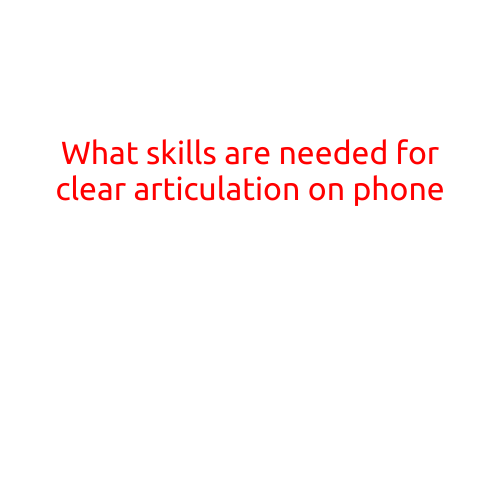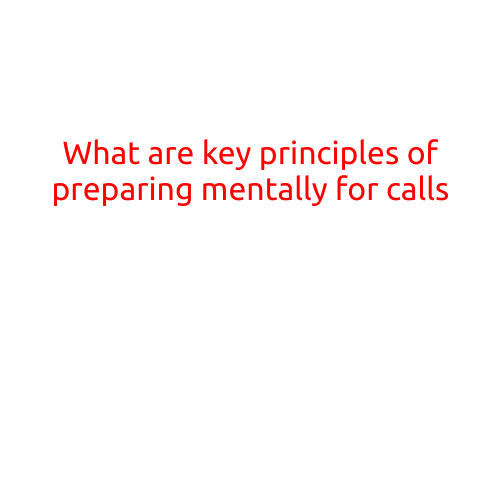
What Skills are Needed for Clear Articulation on Phone?
In today’s technology-driven world, communication is no longer limited to face-to-face interactions. With the rise of remote work, online meetings, and phone calls, it’s essential to develop skills that enable effective communication over the phone. One crucial aspect of phone communication is clear articulation, which refers to the ability to enunciate words clearly and effectively convey your message. In this article, we’ll explore the key skills needed for clear articulation on phone.
1. Proper Diction
Proper diction is the foundation of clear articulation. It involves using the correct pronunciation, stress, and intonation when speaking. To develop good diction, practice speaking slowly and clearly, paying attention to the way you pronounce each word. Pay particular attention to words that are commonly mispronounced, such as those with silent letters or unique vowel sounds.
2. Clarity of Thought
Clear articulation begins with a clear thought process. To convey your message effectively, you need to think clearly and organize your ideas coherently. Take a moment to collect your thoughts before speaking, and structure your message in a logical and concise manner.
3. Good Listening Skills
Listening is just as important as speaking when it comes to clear articulation. Pay attention to the person on the other end of the line, and take the time to absorb what they’re saying. This will help you respond thoughtfully and clearly, and ensure that you’re communicating effectively.
4. Volume Control
Proper volume control is critical for clear articulation on phone. Speak at a moderate pace, avoiding both mumbling and shouting. Aim for a volume that’s comfortable for the listener, taking into account background noise and any potential distractions.
5. Emphasis and Inflection
Using emphasis and inflection when speaking can help convey your message more effectively. Vary your tone, pitch, and volume to add emphasis to key points, and use pauses to create a sense of drama or significance.
6. Practice Relaxation Techniques
Stress and anxiety can negatively impact your ability to articulate clearly over the phone. To combat this, practice relaxation techniques such as deep breathing, progressive muscle relaxation, or meditation. These will help you remain calm and focused, making it easier to communicate effectively.
7. Familiarity with Technology
Finally, familiarity with phone technology can also impact your ability to articulate clearly. Familiarize yourself with your phone’s audio settings, and experiment with different apps and features to find what works best for you.
Conclusion
Clear articulation on phone requires a combination of skills, including proper diction, clarity of thought, good listening skills, volume control, emphasis and inflection, practice relaxation techniques, and familiarity with technology. By practicing these skills, you’ll become a more effective communicator, and be better equipped to convey your message clearly and confidently. Remember that clear articulation is a skill that takes time and effort to develop, but with consistent practice, you can become a pro at communicating over the phone.





